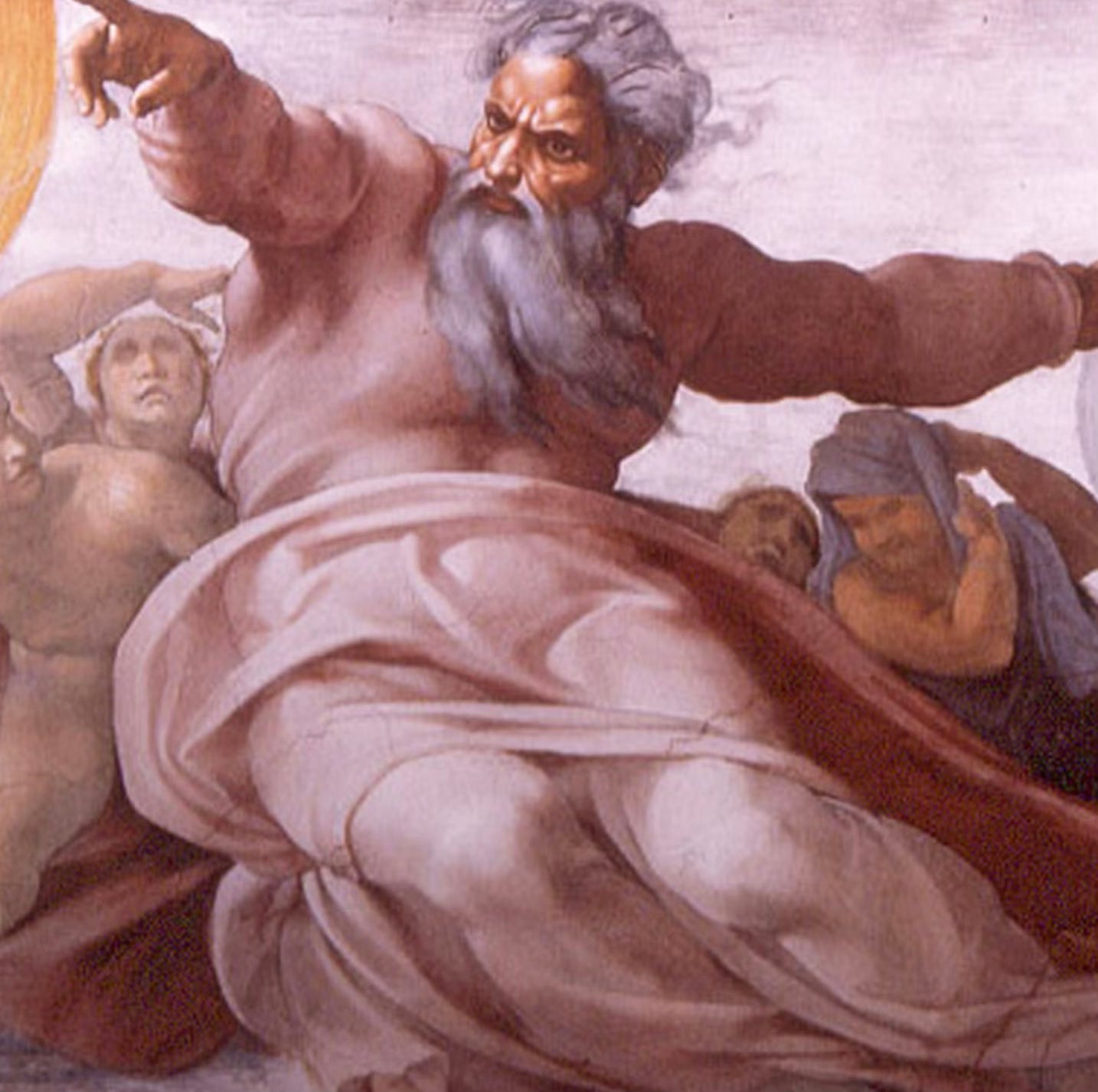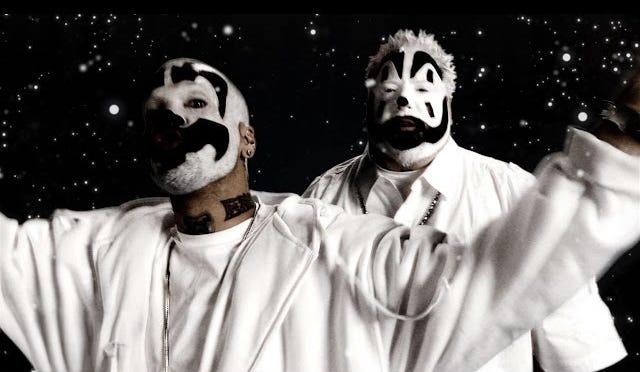
St. Thomas Aquinas said, “To one who has faith, no explanation is necessary. To one without faith, no explanation is possible.” But Ross Douthat didn’t become your liberal mom’s favorite conservative by giving Thomas Aquinas the last word. His new book Believe is marketed as presenting “the case for the rationality of religious belief in a contemporary world often marked by skepticism.” In other words, it’s one long explanation, aimed squarely at those without faith.
Despite having just written about how I’m more or less no longer an atheist, I think I still qualify as one without faith. In fact, my current mix of religion-skeptical and religion-curious puts me smack dab in Believe’s target audience, which is an embarrassing thing to admit about any book by a New York Times opinion columnist1. This week I’m reading a Ross Douthat book, last week I made an impassioned argument for not throwing away “all these good boxes”... middle age sneaks up on you fast.
Believe’s subtitle is “Why Everyone Should Be Religious.” But that “should” is a little misleading. This isn’t one of those trendy cases for the social utility of religion, these days an uncontroversial idea even among nonbelievers. Nor is it an argument for the loose, New Age “god,” that vague sense that some undefined greater-than-us thing is out there. No, Douthat believes in the biblical God, the one with the capital G and the bushy beard who regularly intervenes in human affairs. He wants you to believe not (just) because religion is good for you, but because it points to the truth about our world.
Like a lawyer at the Supreme Court, Douthat throws out as many arguments as he can, hoping the cumulative effect will be convincing even if they don’t all land. He starts with the so-called “fine-tuning argument,” which is basically intelligent design, but for physics: the theory that the underlying structure of the universe is so precisely calibrated for life and scientific discovery that it must have been designed.
Though physicists once thought they might find that the specific properties of our universe are inevitable, it now appears universes with many different properties are theoretically possible. But these other possible universes mostly either wouldn’t support life (if the nuclear force were just infinitesimally larger, hydrogen would be unable to form), or else would support life, but harshly limit science (if the electromagnetic force were slightly different, microscopes wouldn’t really work). Convergence on all of these properties is so incredibly unlikely to have happened by accident, the idea goes, that it must be the work of a creator2.
There’s an undeniably appeal to the image of humanity on a divinely-inspired quest to discover the true nature of reality (it’s why I think space exploration is important, even in the absence of any practical applications). But if the universe was actually designed for life, wouldn’t you expect… more life? It seems pretty arrogant to think the world was fine-tuned for life when as far as we can tell life makes up a negligible percent of the observable universe. The human body is in some ways “fine-tuned” for the production of poop, but if the poop thinks it’s the point of the whole system, it is sadly deluded.
Next, the book addresses miracles, which Douthat believes in largely because there are so many historical sources attesting to them. (He’s particularly into levitating saints, which were apparently a big thing in Middle Ages Europe.) As for the scarcity of such sights today, please ignore the inconvenient fact that such “miracles” stopped happening right as we developed better methods for verifying them. The real situation is kind of like that guy from the 1999 Ben Stiller vehicle Mystery Men who can turn invisible, but only when no one’s looking—miracles have just naturally declined as our world has gotten less spiritually “tuned-in.”
It’s easy to dismiss testimony from 500 years ago3; harder to make sense of the strange experiences people still report today, especially when they happen to the last people you’d expect. The book’s most compelling example comes from a guy named Michael Shermer, who in his sixties encountered a ghostly presence that made him think the supernatural might be real. Not so unusual—expect that Shermer is a professional debunker and the literal founder of Skeptic magazine4.
This part of the book actually did convince me that we should take the so-called “supernatural” more seriously. Still, occasional glimpses of the uncanny don’t necessarily add up to a personal God watching over us. It’s a big leap from weirdness to worship.
Like a politician, Douthat is better at attacking the other side than boosting his own. He doesn’t score any knockout blows for God, but he does land a few solid punches on atheism’s jaw.
This book provides a surprising counterexample to the common assumption that science dispels mysteries once explained by religion: near-death experiences. These were rare before modern medicine, since coming near death was usually a prelude to actually dying. But now, thanks to our increased resuscitation capabilities, such experiences are far more common. And many people, across many cultures, describe them in mystical terms: out-of-body experiences, moving through a tunnel, encountering a bright light, etc.
So here we have an example of scientific progress actually increasing the prevalence of spiritual experience. And these reports—Douthat calls them “evidence,” though I think that’s a bit much—suggest that, at the very least, we don’t live in the most obviously atheistic universe, which would be one where everyone who came close to the end just reported seeing black. The fact that they don’t obviously isn’t proof of anything, but it does admittedly make you wonder.
If you had to get someone to believe in God, how would you do it? (Let’s stipulate that you can’t give them drugs.) Luckily, history provides us with many methods to choose from. You could try to instill a sense of awe with a grand cathedral or a majestic ritual. You could lure someone in with the practical benefits of religion—community, tradition, moral guidance—and hope that faith follows. You could tell them stories that offer answers to life’s biggest questions. And of course, there’s always the time-tested approach of threatening to kill anyone who doesn’t convert to your preferred religion.
You probably wouldn’t do what this book does: make a considered, methodological argument for religion’s factual truth. If that approach worked, every preacher would sound like a Ken Burns documentary, and every conversion story would just be a guy quietly reasoning his way to God.
Perhaps this book would land better if it had a bit more uncertainty. Every great religious narrative has a moment where the believer’s faith is tested, but Douthat never evinces even the teensiest bit of doubt. I would have found him much more persuasive if he at least conceded the occasional point to agnosticism. In the absence of even a perfunctory gesture at evenhandedness, he reminded me of a conspiracy theorist, seeing evidence everywhere for what he already thinks5.
Besides, I don’t even think the “evidence” Douthat lays out is the true reason for his belief. I don’t think he believes in God because of the precise value of the nuclear force or some guys who say they saw saints fly, just like I don’t think Sam Harris is an atheist because he determined that it’s biologically impossible for a snake to talk. This book purports to explain why everyone should believe, but I don’t even buy it as an accurate explanation of why Douthat himself believes. This stuff operates on a more mystical, less explicable plane, and that’s the point—you can no more reason your way into religion than you can reason your way into explaining why a joke is funny or a desert is beautiful. One has faith in spite of the evidence, not because of it. Otherwise, is it really even faith at all?
It could be worse—at least I’m not looking for advice on character from a guy who divorced his wife and married his half-his-age assistant.
I’m grossly condensing the science here—if you want to read 22 pages on this idea, there’s a pretty readable paper about it here.
Since this same argument—eyewitness testimony is unreliable—could apply to all sorts of long-ago events that we accept as historical fact, this part of the book also had the totally unintended effect of convincing me that much of recorded history might not be as true as we think it is.
He’s also (allegedly) a serial sexual harasser. Perhaps he had an ulterior motive for dedicating his career to the idea that you can’t always believe what people say happened to them.
This is a good time to share the old joke about the JFK conspiracy theorist who dies and goes to heaven, where God offers to answer any question he has about the universe. Obviously, our conspiracy theorist asks, “Who really killed JFK?”
“Lee Harvey Oswald,” God tells him, “acting alone.”
Our man’s eyes go wide. “Wow,” he says. “This goes even higher up than I thought!”









